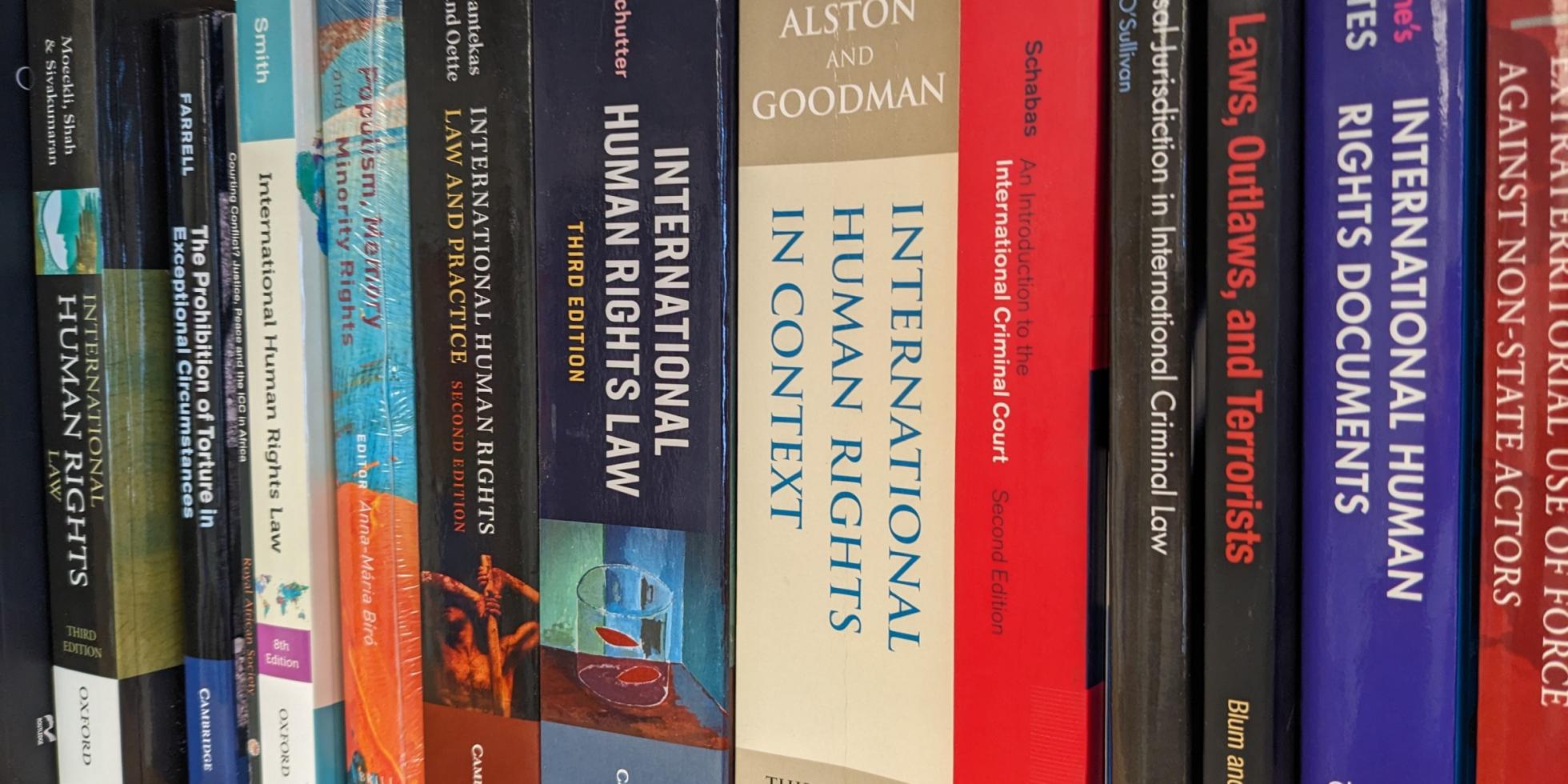The virtual human rights library brings together resources from multiple libraries and information services, both internal and external, to create an online hub dedicated to the study of human rights. This curation is unique in its interdisciplinary concerns and focuses on writings and research from social sciences, humanities, and law.
The virtual library is continually updated with the latest academic research in issue areas, as well as with relevant films, recorded conversations, and other forms of media.
Please Note:
The Virtual Library is usable by all visitors, but the hyperlinks to materials listed are for UChicago community members with a CNet ID and password.
Please direct feedback and suggestions to Kathleen Cavanaugh.
For technical assistance, email pozenhumanrights @ uchicago.edu.
Searchable Database
Click into the dropdowns to select the disciplines, keywords, and media type for your search, and then hit "Apply."
Immediations: The Humanitarian Impulse in Documentary
Endangered life is often used to justify humanitarian media intervention, but what if suffering humanity is both the fuel and outcome of such media representations? Pooja Rangan argues that this vicious circle is the result of immediation, a prevailing documentary ethos...
Imperialism, Sovereignty and the Making of International Law
This book argues that the colonial confrontation was central to the formation of international law and, in particular, its founding concept, sovereignty. Traditional histories of the discipline present colonialism and non-European peoples as peripheral concerns. By contrast, Anghie argues that...
Impossible Subjects: Illegal Aliens and the Making of Modern America
This book traces the origins of the illegal alien in American law and society, explaining why and how illegal migration became the central problem in U.S. immigration policy--a process that profoundly shaped ideas and practices about citizenship, race, and state...
In Close Association: Local Activist Networks in the Making of Japanese Modernity, 1868–1920
In Close Association is the first English-language study of the local networks of women and men who built modern Japan in the Meiji period (1868–1912). Marnie Anderson uncovers in vivid detail how a colorful group of Okayama-based activists founded institutions, engaged in...
In the Event of Women
In the Event of Women outlines the stakes of what Tani Barlow calls “the event of women.” Focusing on the era of the late nineteenth century through the mid-twentieth century's Cultural Revolution, Barlow shows that an event is a politically...
In the Name of Humanity: The Government of Threat and Care
Scientists, activists, state officials, NGOs, and others increasingly claim to speak and act on behalf of “humanity.” The remarkable array of circumstances in which humanity is invoked testifies to the category’s universal purchase. Yet what exactly does it mean to...
In the Shadow of the Rising Dragon: Stories of Repression in the New China
Over the last decade China has undergone a transformation. After the dark days of the Cultural Revolution, it has emerged as one of the twenty-first century's most powerful economies, with millions of citizens now entering the middle class. Yet, despite...
In the Wake: On Blackness and Being
In this original and trenchant work, Christina Sharpe interrogates literary, visual, cinematic, and quotidian representations of Black life that comprise what she calls the "orthography of the wake." Activating multiple registers of "wake"--the path behind a ship, keeping watch with...
Incidents in the Life of a Slave Girl
One of the most memorable slave narratives, Harriet Jacobs's Incidents in the Life of a Slave Girl illustrates the overarching evil and pervasive depravity of the institution of slavery. In great and painful detail, Jacobs describes her life as a...
Indigenous Data Sovereignty: Toward an agenda
As the global ‘data revolution’ accelerates, how can the data rights and interests of indigenous peoples be secured? Premised on the United Nations Declaration on the Rights of Indigenous Peoples, this book argues that indigenous peoples have inherent and inalienable rights...

